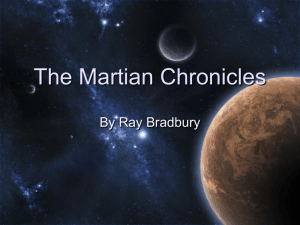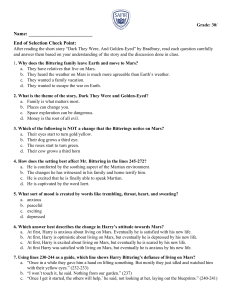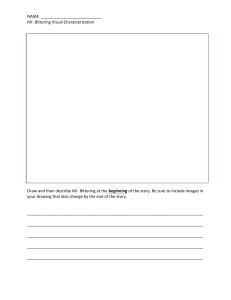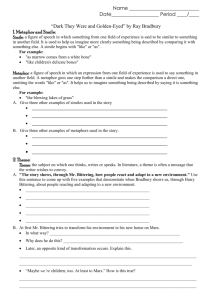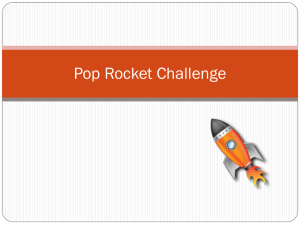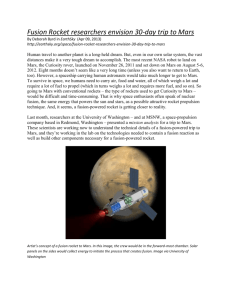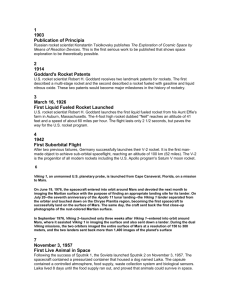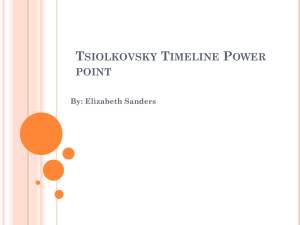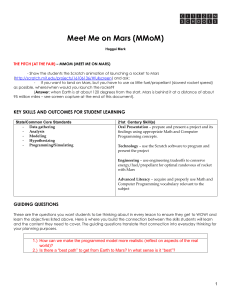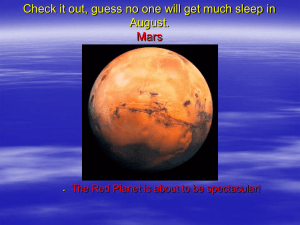Dark They Were, and Golden-Eyed
advertisement
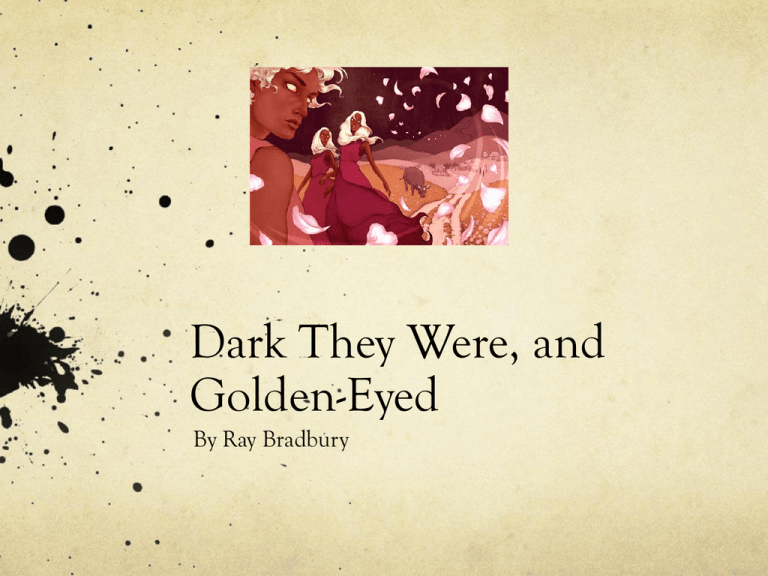
Dark They Were, and Golden-Eyed By Ray Bradbury Before reading: Connect to Your Life Label the next page in your LNb “Dark They Were, and Golden-Eyed.” Then answer the following questions: Have you ever been in a situation where you had to adapt to a very different environment from what you were used to? How did you react? What things about yourself did you have to change? Be ready to share your thoughts with the class. Before Reading: Understand Vocabulary Synonyms are words that share similar meanings. Using synonyms can add variety and clarity to writing. It is important to choose the accurate synonym for the context of the original word. Use a thesaurus and a dictionary and consider the context when making synonym choices. On the following slide, your Words to Know are in sentences. Replace each underlined word with an appropriate synonym. Before Reading: Understand Vocabulary Example: The man felt that something was amiss when he stepped off the rocket. Wrong He felt his hope dwindle when he heard the news. Lessen, diminish The flimsy structure toppled in the wind. Fragile, weak Each day that passed made the thought of the rocket recede from his mind. Withdraw, diminish, go away The forlorn town soon deteriorated. Deserted, abandoned Reading 1: Visualizing Visualizing is forming a mental picture of characters, events, and settings based on a written description. Involves all senses, not just sight. Is aided by the author’s use of vivid descriptions When you read, try to “see” the settings and characters described, but also try to hear, feel, smell, and taste what the writer describes. Group Discussion Questions Why does Harry Bittering want to return to Earth as soon as he gets out of the rocket? Why does Cora Bittering want to stay on Mars? How does Harry try to resist the changes that are happening to others? Is he successful? How does Harry’s attitude toward his rocket change over the course of the summer? What do the Bitterings leave behind when they go to the mountains for the summer? Reading 2: Events That Advance the Plot An event in a story is an action, rather than a thought or an idea. What is the first event that occurs in the story? Pg. 479, paragraph 1: A rocket lands on Mars and a family emerges, along with other passengers. How does it move the story forward? This event puts the family in the setting in which the story will take place. Reading 2: Events That Advance the Plot Events not only advance the story, but also explain characters’ current actions and foreshadow future actions. On pg. 483, Mr. Bittering notices that his vegetables have changed. What event that occurs on page 485 does this help explain? If the fruits and vegetables are becoming Martian, so might the people. The event helps explain why Mr. Bittering said, “lorrt.” He is being influenced by living on Mars. What does this event tell you about what might happen later in the story? Perhaps other Earthlings will transform as well. Reading 2: Events That Advance the Plot Events explain present action and foreshadow future action. On pg. 487, Dan wants to change his name. How does this event fit in with what has occurred previously, or how does it foreshadow upcoming events? Many things have changed for the Bitterings since they landed on Mars. This wish by Dan to change his name is just one more example. It may foreshadow that there will be other changes. Reading 3: Circular Plot Structure Plot development is often explained in terms of a triangle, in which the rising action is one side of the triangle, the climax is at the apex, and falling action is the other side. Some plots can be explained in terms of a circle because important details and events are repeated at the beginning and end the story. Reading 3: Circular Plot Structure • In the paragraph on page 490 that begins, “Five years later,…” what event occurs? • • People from Earth land on Mars in rocket ships. Did a similar event occur earlier? • This event occurred previously at the beginning of the story when the Bitterings landed on Mars.
